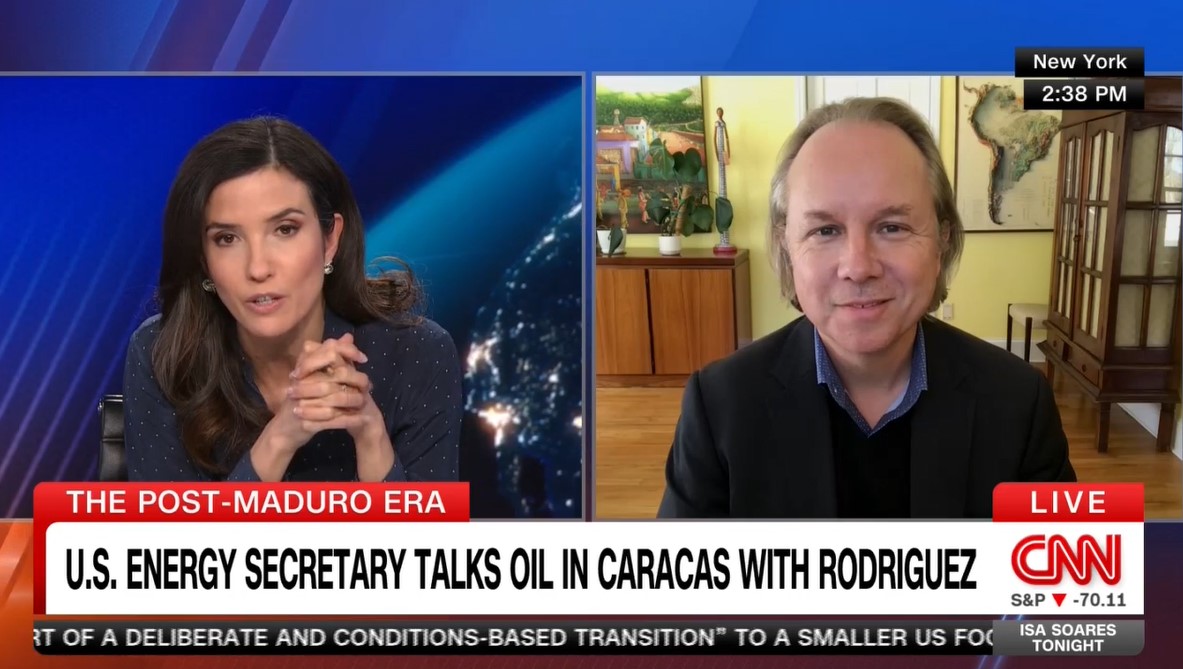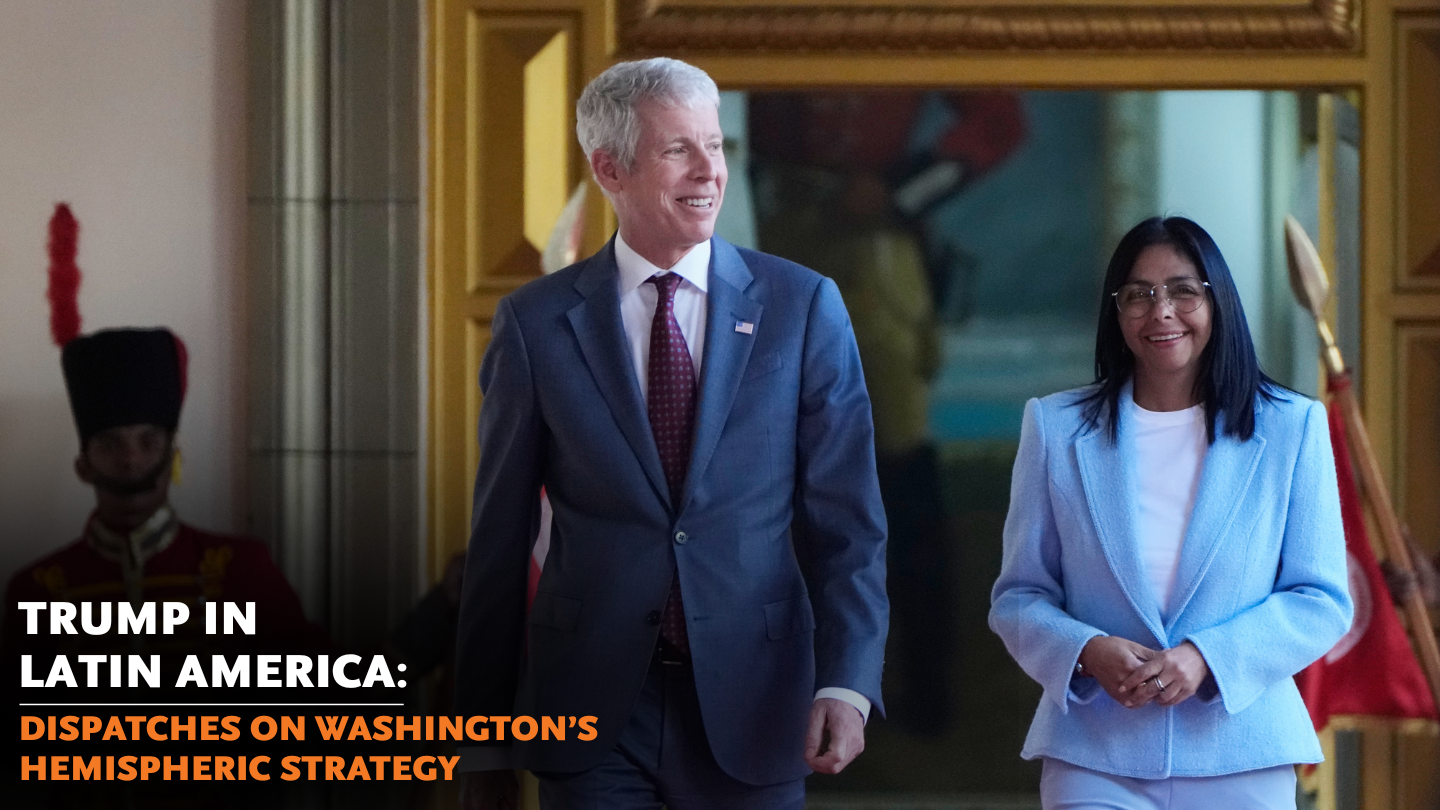Congress: A Key to Hemispheric Progress
Congress: A Key to Hemispheric Progress
The role of Congress is hugely significant in U.S. foreign policy towards Latin America, but its influence is rarely mentioned. And now, the region will shortly lose some of its best friends in Congress.
What do Senators Bob Graham and John Breaux, and Congressmen Cass Ballenger, Cal Dooley, Jennifer Dunn, and Doug Bereuter have in common? They have all been among Latin America’s best friends in Congress. And they are all retiring.
Recent commentary from Latin America watchers has focused on the perceived differences that the Bush or Kerry Administrations might bring to the region, and the fact that our own hemisphere traditionally receives less attention from policy makers than other regions, despite the complexity of issues and the importance these issues hold for the well being of North Americans. Congress is rarely mentioned, although its role is hugely significant.
Without Congressional action, for example, immigration and border security reform cannot be addressed. Trade promotion authority (TPA) expires in June 2005 and can only be reauthorized by Congress. With or without TPA, only Congress can pass critical trade and investment expansion initiatives including a free trade area of the Americas, a free trade agreement with Central America, and an agreement with certain Andean nations that is now under discussion. Agriculture subsidies and protected sectors cannot be liberalized apart from Congress. Significant additional foreign assistance for Latin America, such as that proposed by Congressman Bob Menendez, can only be appropriated by Congress. Aid to Colombia cannot be sustained without Congress, nor can counter narcotics or HIV/AIDS prevention assistance. Cuba policy has been mandated through the 1996 Helms-Burton Act, and the embargo written into U.S. law.
In short, U.S. policy toward the Americas runs directly through Congress. That’s democracy. But it means that the retirements of such strong Congressional friends of Latin America and the Caribbean will be felt acutely, unless new champions for the region arise to take their places.
The region will miss the pro-trade leadership of Democrats Graham, Breaux, and Dooley, all of whom have played significant roles in expanding hemispheric trade, often at odds with their political supporters. Republicans Dunn and Bereuter have been strong supporters of regional trade expansion in an environment where trade votes have become increasingly caustic, and closely contested. House Western Hemisphere Subcommittee Chairman Ballenger, along with Congressman Bill Delahunt, is one of only a handful of people in Washington or anywhere else who can pick up the telephone and reach Venezuela’s President Chavez, an important, informal bilateral channel.
Not all is being lost, of course. Long-standing friends of the region remain in place, including the critical House leadership triumvirate of Speaker Dennis Hastert, Rules Committee Chairman David Dreier, and Foreign Operations Subcommittee Chairman Jim Kolbe. Republican Congressmen Kevin Brady is shepherding the Central America trade agreement through Congress, much as Judy Biggert did successfully for the agreement with Chile last year. Senator Chris Dodd and Congressman Menendez, both Democrats, will remain in significant leadership roles, and Democratic Senator Bill Nelson is positioning himself to fill the gaping void that will be left by Graham’s departure.
Still, without a critical mass of legislators ready to engage on hemispheric matters, there is only so much that can be achieved. In this context, there is a potentially critical role to be played by the Hispanic Caucus, which has traditionally been more focused on domestic matters - much as the Congressional Black Caucus (CBC) has played such a significant role in advancing policy toward Africa and the Caribbean, especially on the issues of Haiti, trade, and HIV/AIDS. Quite simply, there would be no Africa Growth and Opportunity Act or enhanced Caribbean Basin Initiative were it not for the leadership of CBC members such as House Ways and Means Ranking Minority Member Charlie Rangel. HIV/AIDS prevention and care has also greatly benefited from CBC leadership, much as Senate Foreign Relations Chairman Richard Lugar is doing in the Latin American context.
Even so, to this point the broader Hispanic community has not really been engaged in assessing the benefits of engagement and trade with Latin America. Those who have addressed the issues through elected representatives and organizations are deeply divided. Without a consistent voice for regional engagement, other priorities will continue to predominate. This year, for example, there have been five Senate hearings dedicated to hemispheric affairs. Two of these have been held on Haiti.
The implications are obvious. Unless a greater constituency for hemispheric engagement develops in Congress, many of the most important regional matters will languish. In the near term, unless this dynamic changes, Congress will lose an historic opportunity to solidify U.S. relations with Central America if it takes no action to support trade and investment between the United States and Central America plus the Dominican Republic. Shortly thereafter, Congress will have an opportunity to support a trade agreement with the Andean region. Over the medium term, FTAA will likely come before Congress. Failure to pass such agreements would do significant harm to hemispheric relations, especially given the mantra that trade, not aid, would provide the means for regional economic growth and development. As the joke has circulated in Latin America, the “not aid” part of that equation has been a success.
In the meantime, Latin America watchers owe a debt of gratitude for the important work that these six retiring legislators have accomplished on a bipartisan basis. Their records are strong; their legacies secure. In the spirit of this year Olympics, it will now be up to others in Congress to carry the hemispheric torch.








